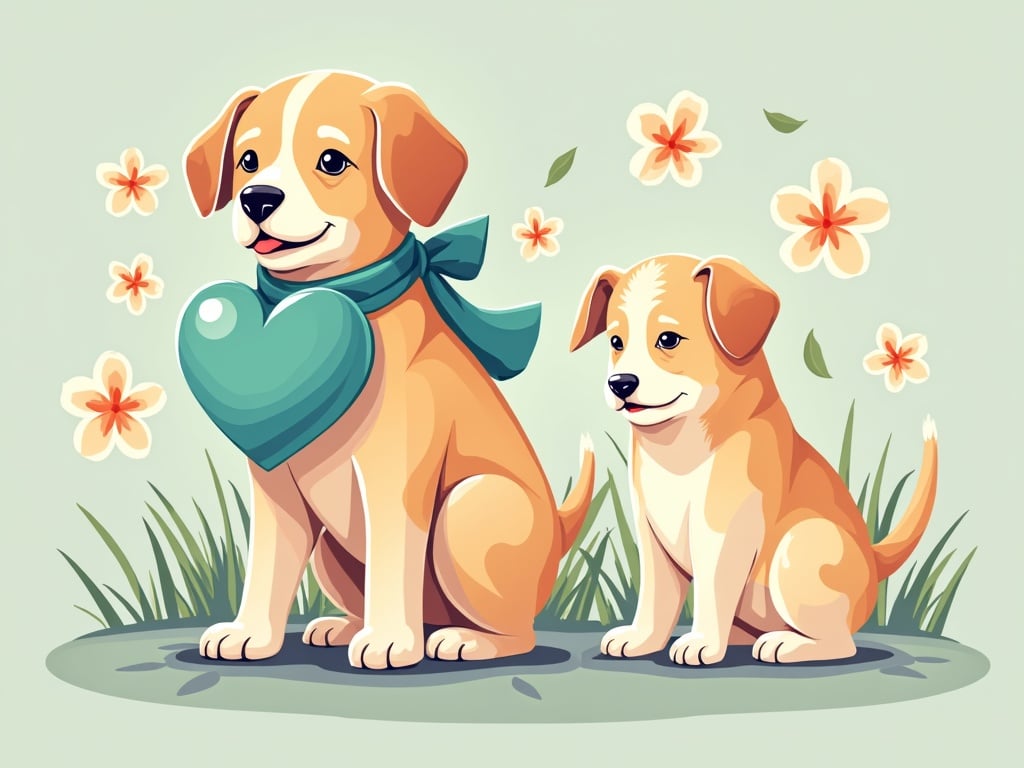The First 24 Hours: Your New Puppy's Schedule for Success
Bringing a new puppy home is like adding a tiny, furry tornado to your life – a whirlwind of excitement, cuddles, and, let's face it, a bit of chaos. Those first 24 hours are crucial; they set the tone for your relationship and help your pup adjust to their new world. Forget rigid itineraries; this is about creating a foundation of trust, comfort, and positive experiences. So, ditch the detailed spreadsheet and embrace a flexible, loving approach to navigating your new puppy's first day.
Before the Big Arrival: Puppy-Proofing and Prep
Before you even pick up your new family member, preparation is key. Think of it as setting the stage for a smooth transition.
**Puppy-Proofing is Paramount:Get down on your hands and knees and see the world from a puppy's perspective. Remove anything toxic or chewable within reach – electrical cords, cleaning supplies, medications, small objects that could be swallowed. Remember, curiosity (and a strong jawline) can lead to trouble.
**Create a Safe Haven:Designate a specific area as your puppy's den. This could be a crate, a corner of a room with a bed, or even a playpen. Make it cozy and inviting with soft bedding, a blanket that smells like their previous home (if possible), and a few safe toys. This is their space to retreat to when they feel overwhelmed or need some alone time.
**Gather the Essentials:Food and water bowls, puppy food (ideally the same brand they were previously eating), a leash and collar (or harness), potty training pads (if you're using them), and a variety of toys are non-negotiable. Having everything on hand will save you frantic trips to the pet store when you should be bonding with your pup.
**Find a Vet:Before you get your puppy, do some research and find a vet that you want to take your puppy to for check-ups, and in case of emergencies.
The Homecoming: Gentle Introductions and Exploration
The car ride home is often the first adventure for your new puppy. Keep it calm and reassuring. A crate lined with a familiar-smelling blanket is ideal for safety and comfort. Talk softly to your puppy, offering gentle reassurance.
**Arrival Etiquette:When you arrive home, carry your puppy to their designated potty spot. Even if they don't go, the association will begin immediately. Praise them enthusiastically if they do eliminate!
**Controlled Exploration:Don't overwhelm your puppy with the entire house at once. Start with a limited area, such as the living room or kitchen. Allow them to explore at their own pace, sniffing and investigating.
**Meet the Family (Gradually):Introduce your puppy to other family members one at a time, in a calm and controlled manner. Supervise interactions with children closely, teaching them how to handle the puppy gently and respectfully. Discourage chasing or roughhousing.
**Settle In:Once the initial excitement has died down, guide your puppy to their safe haven. Offer food and water, and let them settle in at their own pace. Don't force interaction; allow them to adjust to their new surroundings.
Feeding Time: Establishing a Routine
Consistent feeding times help regulate your puppy's digestive system and make potty training easier.
**Stick to the Schedule:Feed your puppy small, frequent meals throughout the day, as recommended by your veterinarian or breeder. Typically, puppies need to be fed 3-4 times a day.
**Fresh Water Always:Ensure fresh, clean water is always available.
**Monitor Food Consumption:Pay attention to how much your puppy eats and adjust accordingly. If they're consistently leaving food in their bowl, reduce the portion size. If they seem ravenous, you may need to increase it slightly, but always consult with your vet about how much your puppy should be eating.
Potty Training: Patience and Positive Reinforcement
Potty training is a marathon, not a sprint. Accidents will happen – it's part of the process. The key is consistency, patience, and positive reinforcement.
**Frequent Potty Breaks:Take your puppy out to their designated potty spot every 2-3 hours, especially after waking up, eating, and playing.
**Verbal Cue:Use a specific word or phrase when you take your puppy out to potty, such as Go potty or Do your business. This will help them associate the command with the action.
**Positive Reinforcement:When your puppy eliminates outside, praise them enthusiastically and offer a small treat. This positive reinforcement will encourage them to repeat the behavior.
**Accidents Happen:If you catch your puppy in the act of eliminating indoors, calmly interrupt them and take them outside immediately. Clean up accidents thoroughly with an enzymatic cleaner to eliminate odors and discourage repeat offenses in the same spot. Never scold or punish your puppy for accidents; this will only create fear and anxiety, making potty training more difficult.
Sleep Schedule: Rest and Recharge
Puppies need a lot of sleep – typically 16-20 hours a day. A consistent sleep schedule is crucial for their physical and mental development.
**Create a Bedtime Routine:Establish a relaxing bedtime routine, such as a gentle play session followed by a calming cuddle.
**Safe and Comfortable Sleep Space:Make sure your puppy's safe haven is comfortable, quiet, and dark.
**Nighttime Potty Breaks:Be prepared for nighttime potty breaks, especially in the early days. Take your puppy out to their designated spot, but keep the interaction low-key and avoid playing or talking excessively.
**Ignore Whining (When Appropriate):It's tempting to rush to your puppy's side every time they whine or cry at night, but resist the urge unless you suspect they need to potty. Ignoring attention-seeking behavior will help them learn to self-soothe.
Playtime and Bonding: Building a Relationship
Playtime is essential for your puppy's physical and mental well-being. It's also a fantastic opportunity to bond and build a strong relationship.
**Short and Sweet Sessions:Keep play sessions short and sweet, especially in the beginning. Puppies have short attention spans and can easily become overwhelmed.
**Variety is Key:Offer a variety of toys, such as chew toys, plush toys, and interactive toys.
**Positive Reinforcement Training:Incorporate positive reinforcement training into playtime. Use treats and praise to reward desired behaviors, such as sit, stay, and come.
**Gentle Handling:Handle your puppy gently and respectfully, avoiding rough play or teasing.
Addressing Common Challenges: What to Expect
Those first 24 hours aren't always smooth sailing. Be prepared for some common challenges.
**Crying and Whining:It's normal for puppies to cry or whine, especially at night, as they adjust to being away from their mother and siblings. Offer comfort and reassurance, but avoid reinforcing attention-seeking behavior.
**Nipping and Biting:Puppy nipping and biting are common behaviors, especially during play. Redirect their attention to a chew toy and teach them that biting is unacceptable.
**Destructive Chewing:Puppies explore the world with their mouths, so destructive chewing is almost inevitable. Provide plenty of appropriate chew toys and redirect their attention when they start chewing on something they shouldn't.
**Separation Anxiety:Some puppies experience separation anxiety when left alone. Start with short periods of separation and gradually increase the duration. Provide them with a safe and comfortable space to retreat to when you're not around.
Beyond the First 24 Hours: Building a Bright Future
The first 24 hours are just the beginning of your journey with your new puppy. Consistency, patience, and love are the keys to building a strong and lasting bond. Remember these tips:
**Continue Positive Reinforcement:Stay consistent with positive reinforcement training. Reward desired behaviors with treats and praise.
**Socialization is Crucial:Expose your puppy to a variety of sights, sounds, and experiences to help them become well-adjusted adults.
**Veterinary Care is Essential:Schedule regular veterinary checkups and vaccinations to keep your puppy healthy and happy.
**Enjoy the Journey:Raising a puppy is a rewarding experience. Embrace the challenges and celebrate the milestones.
Bringing a new puppy home is an adventure. It's filled with sleepless nights, tiny accidents, and moments of pure, unadulterated joy. By preparing your home, establishing a routine, and showering your pup with love and patience, you'll pave the way for a lifetime of happiness together. So, take a deep breath, embrace the chaos, and enjoy every precious moment. They grow up so fast!


